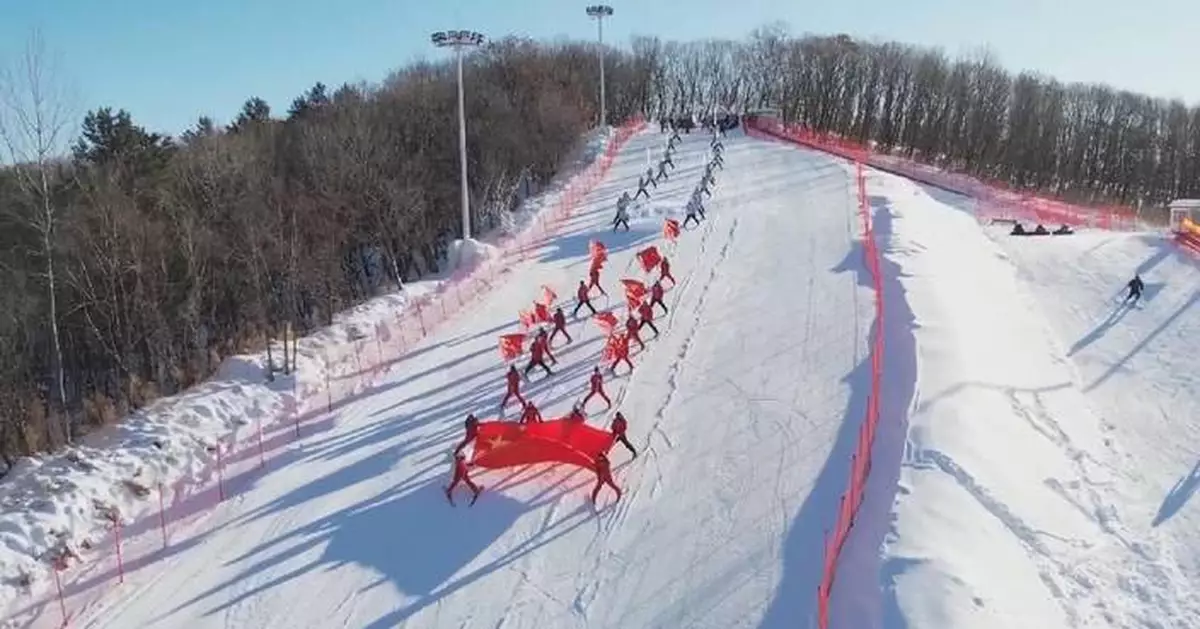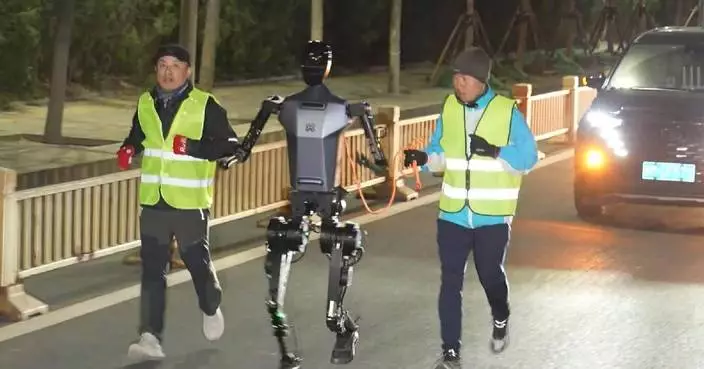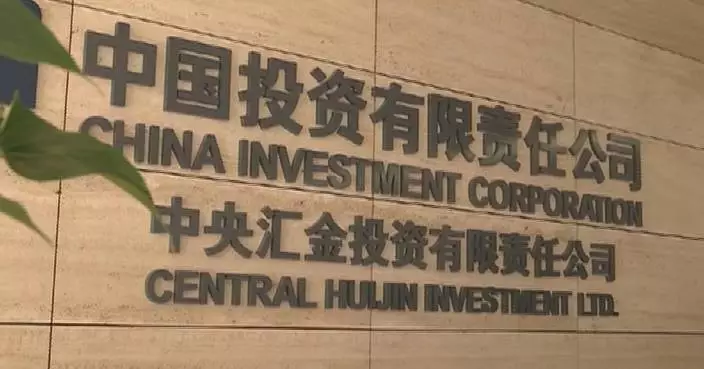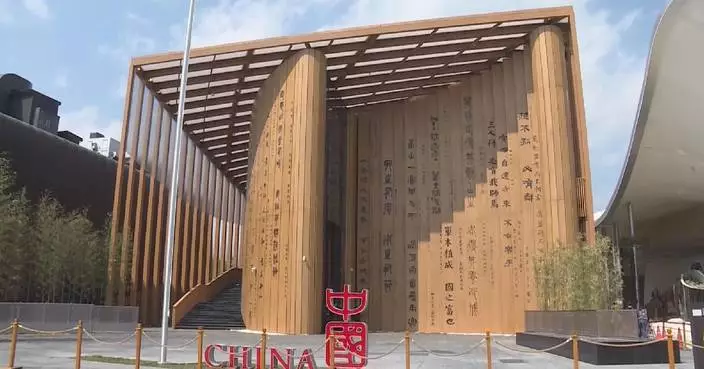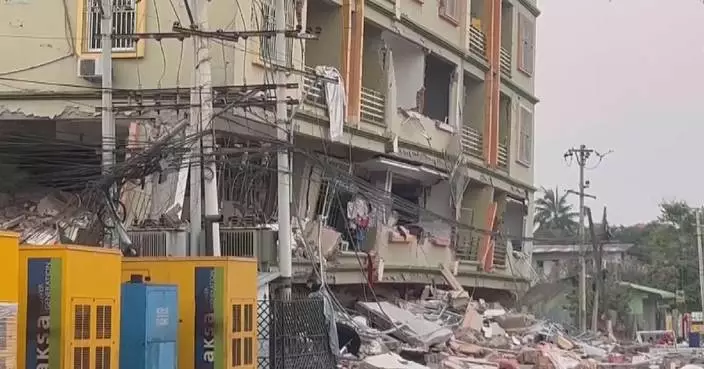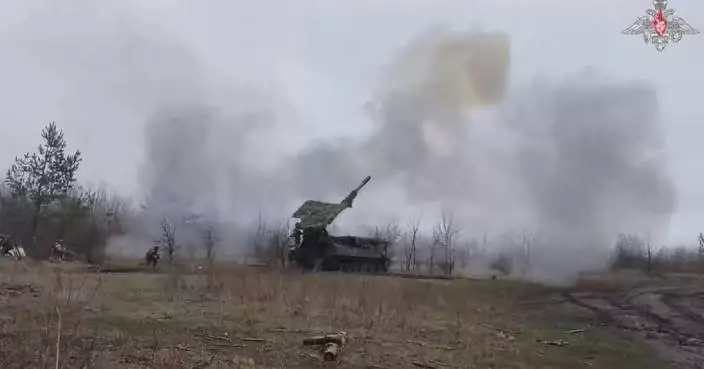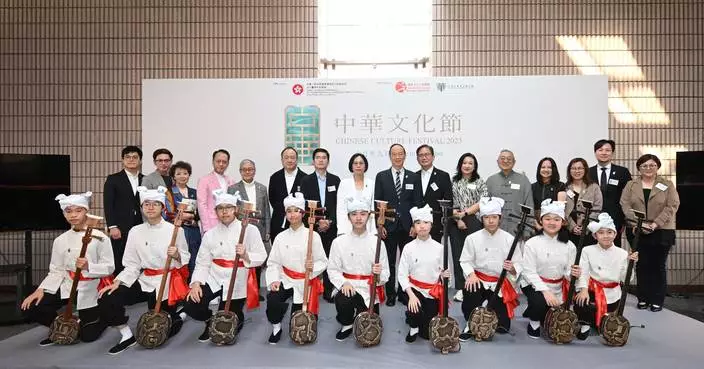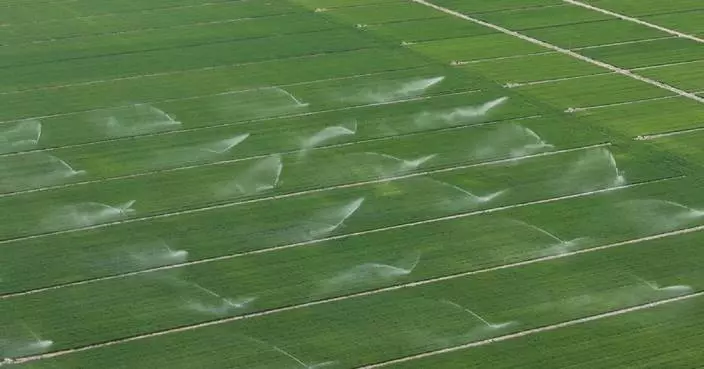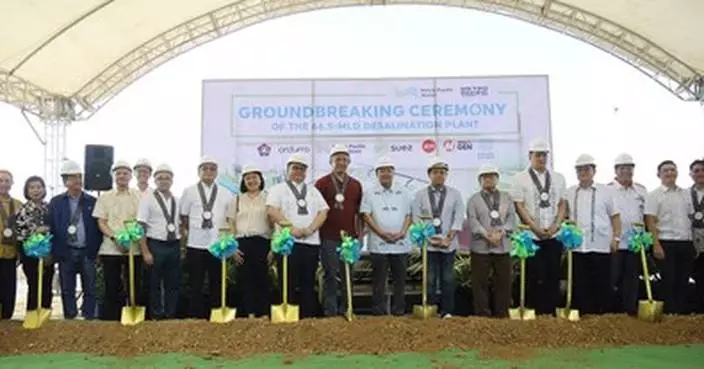Hegang City in China's Heilongjiang Province has been capitalizing the momentum of the upcoming 9th Asian Winter Games to drive growth in the ice and snow industry by holding unique winter sports.
The official competition schedule of the 9th Asian Winter Games was released by the event's organizing committee on Saturday, which will be held from February 7 to 14 in Harbin, the "Ice City" in China.
This event is not just a sporting spectacle, but also a catalyst for economic growth in the region.
Hegang is a city known for its popularity in alpine skiing. Since the 1990s, alpine skiing has been an advantage of Hegang's winter sports activities. The city has nurtured eight athletes who represented China in Winter Olympics, with two of them claiming a total of 11 world championships.
Over the past month, Hegang's ski resorts have seen a significant influx of visitors, with over 3,000 skiing enthusiasts flocking to the slopes. This surge has led to a substantial increase in revenue from tourism-related activities, including ice and snow sightseeings, homestays, and local restaurants, amounting to over 6.26 million yuan (about 855,121 U.S. dollars).
The city is currently hosting a public alpine skiing competition, providing a platform for more skiing lovers to interact and improve their skills.
Participants from various northeastern cities are eager to engage in friendly competition and share their passion for skiing.
"I'm from Yichun. Skiers here in Hegang are exceptionally good in general. Through the competition, we have communications and exchanges of skills. I also enjoy this competition very much," said Liu Fengxuan, a skiing enthusiast from nearby Yichun City in Heilongjiang.
Local authorities are also leveraging the opportunity to promote a range of cultural and tourism activities.
"Taking the advantage of the Asian Winter Games, Hegang has organized over 80 cultural and sports events themed 'Enjoying Ice and Snow'. By integrating sports and tourism, Hegang aims to keep driving growth in the ice and snow industry," said Gu Xiaolong, deputy director of Hegang Municipal Bureau of Culture, Radio, Television and Tourism.
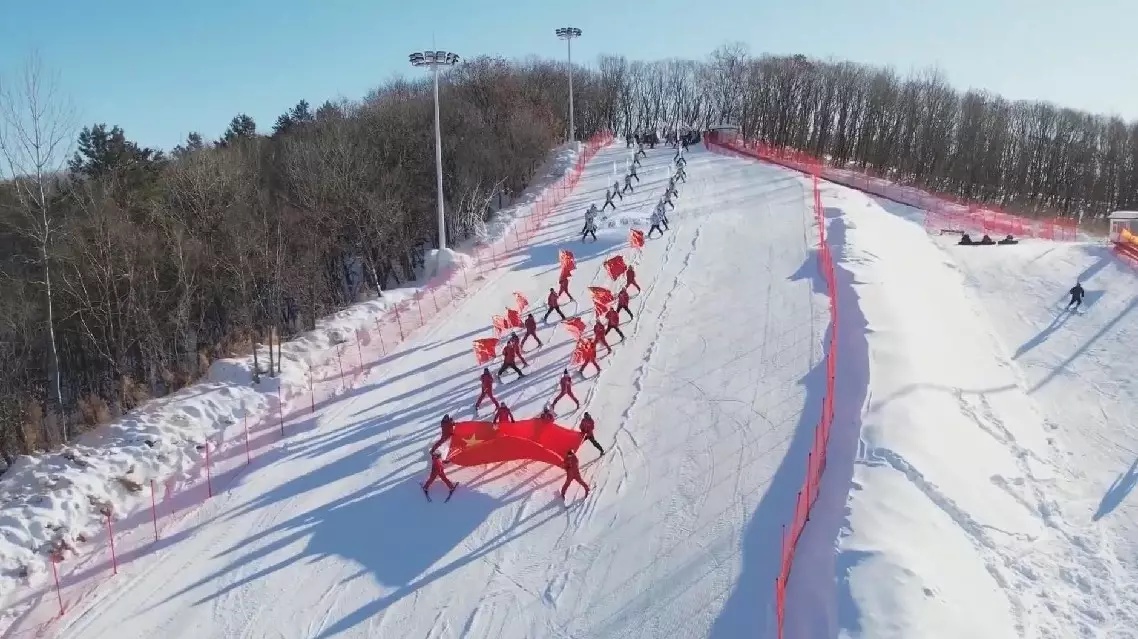
Heilongjiang's Hegang capitalizes momentum of Asian Winter Games to drive growth in ice, snow industry
A Brazilian national who was deported by the United States in January this year recounted the discriminatory and inhumane treatment he encountered during the repatriation in an interview with China Central Television (CCTV).
Jefferson Faustino was among the 88 deported Brazilians sent by a charter flight from the U.S. to Manaus, a city in northern Brazil, on Jan 24.
During dozens of hours of flight, they were handcuffed, shackled, and denied food and bathroom, and they almost lost their lives to an air conditioning fault, according to Faustino.
"They gave us water in very small bottles on the plane. And I couldn't drink it, because my hands were cuffed to the waist chain. So I had to bend down hard and squash the bottle to spray water into my mouth, because otherwise I wouldn't be able to reach the water at all. Even by doing so, I couldn't get water. When I squeeze the bottle, the water sprayed out and soaked me all over. In the 48 hours of repatriation, they distributed food only one time. It was a spoiled sandwich. The sandwich they gave turned purplish color. I was starving. What could I do? I had to eat," Faustino said.
"In the 48 hours of repatriation, they distributed food only one time. It was a spoiled sandwich. The sandwich they gave me was purple. I was starving. What could I do? I had to eat," he added.
Meanwhile, the American crew enjoyed fresh food and water, Faustino told CCTV.
"No, they had very good food. Every meal, they went over there to heat up box lunches and drink water. The cabin cabinets were full of lunch boxes, full of food, but they didn't give us that food," he said.
The Brazilian deportees protested the unfair treatment and asked for the food and water, but they were not given a response, because of the language barrier, Faustino recalled.
"Yes, we asked. We spoke loudly to them, but the crew didn't speak Portuguese or Spanish, only English. It's a humiliation to us the Brazilians, because we didn't have food and couldn't use the bathroom. The children were crying," he said.
After the plane arrived in Manaus, the air conditioning system broke down and the crew got off the plane, leaving the deportees suffocating in the enclosure.
"People couldn't breathe. The cabin was out of air. I managed to open an emergency exit door and shouted to the police: 'Help! Help! Help!' I yelled for help, asking them to come and save us, because I thought I was dying, I was dying," Faustino said.
The Brazilian government deemed this treatment "degrading" and "unacceptable", with the country's foreign ministry summoning the charge d'affaires of the U.S. Embassy to request an explanation over the issue on Jan 26.
"The U.S. government should be held accountable. Why didn't they train these people responsible for transporting deportees. Since the Trump administration came to power, it has created conflicts in American society and adopted policies that are completely against democracy and public opinion, disrupting relations between the U.S. and its economic and political partners," said Rinaldo Leal, a Brazilian lawyer.
U.S. President Donald Trump signed on his inauguration day an executive order that called for mass deportations of undocumented migrants. Since then, raids and deportations of undocumented migrants, especially those from Latin America, have continued to ramp up.

Brazilian deportee recounts inhumane treatment during flight from US

Brazilian deportee recounts inhumane treatment during flight from US



